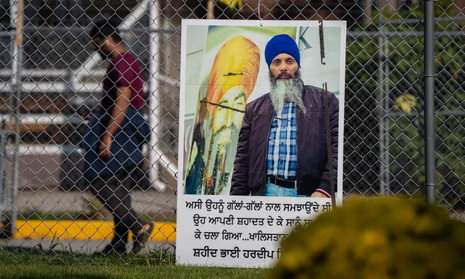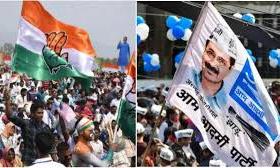
Congress and AAP affirm unity amid resignations over alliance
text_fieldsNew Delhi: Leaders from the Delhi and Haryana units of both the Congress and the Aam Aadmi Party (AAP) convened to assess their "joint election campaign" in light of recent resignations over their alliance.
Arvinder Singh Lovely, who stepped down from a top Delhi unit post, expressed discontent with the tie-up, while two other Delhi Congress leaders also resigned, labeling the alliance as a "great embarrassment."
Representatives from the Congress included Delhi Congress in-charge Deepak Babaria, interim president Devendra Yadav, and other leaders from Delhi and Haryana. On the AAP side, General Secretary Sandeep Pathak, party MLA and PAC member Durgesh Pathak, and Delhi State Vice President Rajesh Gupta were present.
"Both parties are united to save the country from the dictatorship of the BJP government," remarked Sandeep Pathak after the meeting. He emphasized that the two parties will collaborate in campaigning for each other and contest elections jointly, starting at the grassroots level.
"We have created a system in which we will cooperate in campaigning for each other and contest the elections together. It will be implemented first at the Lok Sabha level, then coordination will be done at the Assembly level," he added.
In an exclusive interview with NDTV, Lovely hinted that the joint campaign was not yielding favorable results for the Congress in Delhi and was adversely affecting the party's stronghold.
"In none of seven seats of Delhi, Congress leaders' posters are up. AAP is not even using a single poster of Congress in the seats of Delhi it is contesting from," he stated. Under the agreement to share the seven Lok Sabha seats in the national capital, AAP is contesting four seats, while the Congress is contesting three.
However, this unity does not extend beyond the borders of Delhi and neighboring Haryana. In Punjab and several other states, both parties have fielded candidates against each other, deviating from the initial plan of one-on-one contests, which many opposition leaders believed was the most effective strategy to defeat the BJP.






















